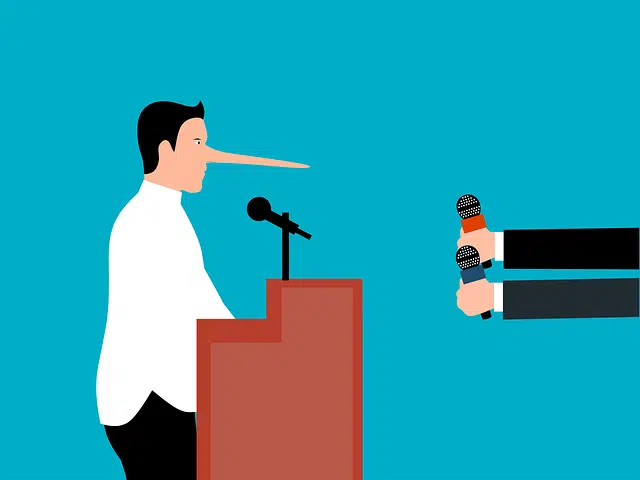
Credibility is linked to the ability to be believed, regardless of the truthfulness of the message.
Credibility is the quality of being credible (that can or deserves to be believed). The term comes from the Latin word credibilis . For example: "She lost all credibility with me when she lied to me about her relationship with Lautaro" , "He is a respected and highly credible man" , "Dr. Irene Sánchez built her credibility thanks to the honesty of her daily work" .
Credibility, therefore, refers to the ability to be believed . It is not linked to the veracity of the message, but to the objective and subjective components that make other people believe (or not) in said content. To have credibility, the person or information must generate trust in others.
About credibility
The following two cases can occur: that a person tells the truth and no one believes him; that someone lies but his interlocutors trust his words literally. This difference is linked to people's credibility and their ability to convince others.
However, it is important to remember that the basis of credibility should always be honesty, since no person can build a circle of friends that lasts a lifetime if they try to support it with lies and falsehood. No matter how much someone has managed to influence their environment, if it is discovered that they have not been honest, their structure will probably crumble.

Credibility is important in human relationships.
Its importance in certain areas
In some professions and trades, credibility is an essential value. Politicians and journalists must be credible, otherwise their jobs lose importance.
The politician who does not have credibility will not be voted for in the elections, while the journalist who finds himself in the same situation will not be well received by the public. Very curiously, this does not happen in show business or the electronic entertainment industry.
The credibility of companies
Large companies often play on the edge of honesty, manipulating the truth at their convenience to make their way through difficult times, and trying to compensate their consumers every time they go through a good season. It is known that we live in a frenetic era, of constant changes and great demands from the public towards different markets; The volume of information we have has turned the innocent buyer into an aspiring expert, who always wants more than what he receives.
Faced with this phenomenon , the giants of the industry are forced to lie more than once to save time and prepare a product that really satisfies the needs of their consumers. Year after year, we are presented with the best television , the most advanced mobile phone , the fastest processor ; It is suspicious that all companies have the most sophisticated product, while dozens of alternatives coexist.
Preparing a product for its market launch, depending on the sector, usually takes a minimum of six months, but in some cases it can last several years. Not even experts are exempt from making false steps, from dedicating a good portion of their life to a project with no future; But the money invested in certain decisions makes it impossible to go back, which is why companies are often forced to present to the world a creation in which they do not trust .
This is the moment in which they attack their own credibility, looking their audience in the face and assuring them that they have found a product that they will not be able to do without. The same happens with actors and singers, with directors and scriptwriters: it is not common for the media to recognize the failure of great artists; An attempt is made to protect an artificial image of perfection , and this is achieved through lies, which the audience itself wants to hear.
